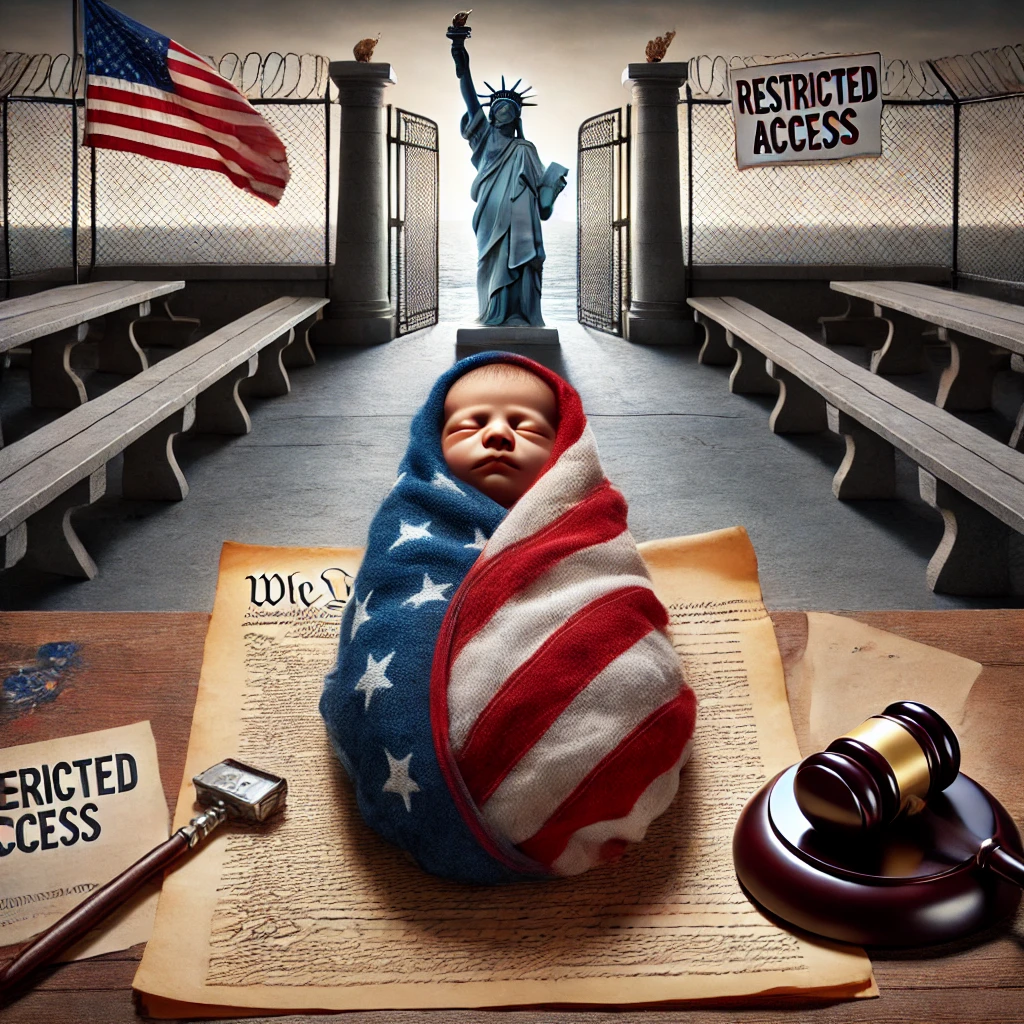Explore the implications of President Trump’s 2025 executive order ending birthright citizenship, focusing on its effects on Indian nationals in the U.S.
On January 20, 2025, President Donald Trump signed an executive order aiming to end birthright citizenship for children born in the United States to undocumented immigrants and certain temporary visa holders. This move has sparked significant debate and concern among various communities, including Indian nationals residing in the U.S.
Understanding Birthright Citizenship
Birthright citizenship, enshrined in the 14th Amendment of the U.S. Constitution, grants automatic citizenship to individuals born on U.S. soil, regardless of their parents’ immigration status. The relevant clause states: “All persons born or naturalized in the United States, and subject to the jurisdiction thereof, are citizens of the United States.” This principle has been a cornerstone of American immigration policy since its adoption in 1868.
Details of the Executive Order
The executive order declares that, effective February 19, 2025, the U.S. will no longer confer automatic citizenship to newborns if one of the parents is neither a U.S. citizen nor a lawful permanent resident. This policy change extends to children born to individuals on temporary visas, such as H-1B (specialty occupation workers), student visas, and tourists.
Legal Challenges and Opposition
The order has faced immediate legal challenges. Federal judges in Seattle, Maryland, and New Hampshire have issued preliminary injunctions blocking its implementation, citing potential violations of the 14th Amendment. The American Civil Liberties Union (ACLU) and other advocacy groups argue that the order undermines constitutional guarantees and fundamental American values.
Indian-American lawmakers have also voiced strong opposition. Congressman Ro Khanna highlighted that the order affects not only undocumented immigrants but also those legally residing in the U.S. on temporary visas, including H-1B holders predominantly from India. He emphasized that this move contradicts the notion of supporting legal immigration.
Impact on Indian Communities
The Indian community in the U.S., particularly those on H-1B visas, is significantly impacted by this policy shift. Many Indian professionals have built their lives in the U.S., contributing to various sectors, especially technology and healthcare. The prospect of their U.S.-born children being denied citizenship introduces uncertainty and concern.
Expectant parents, like Neha Satpute and Akshay Pise, who have been in the U.S. for over a decade on H-1B visas, now face ambiguity regarding their unborn child’s citizenship status. Such families are left questioning the future implications for their children’s identity and rights.
Broader Implications
If enforced, the executive order could lead to a significant shift in U.S. immigration policy, affecting not only undocumented immigrants but also legal residents on temporary visas. The potential denial of citizenship to children born to these individuals raises questions about their legal status and rights within the country.
Conclusion
President Trump’s executive order to rescind birthright citizenship has ignited a complex debate involving constitutional interpretations, legal challenges, and the personal lives of many immigrants, particularly within the Indian community. As the situation evolves, it remains crucial to monitor legal proceedings and understand the broader implications for all affected parties.#Hydkhabar

